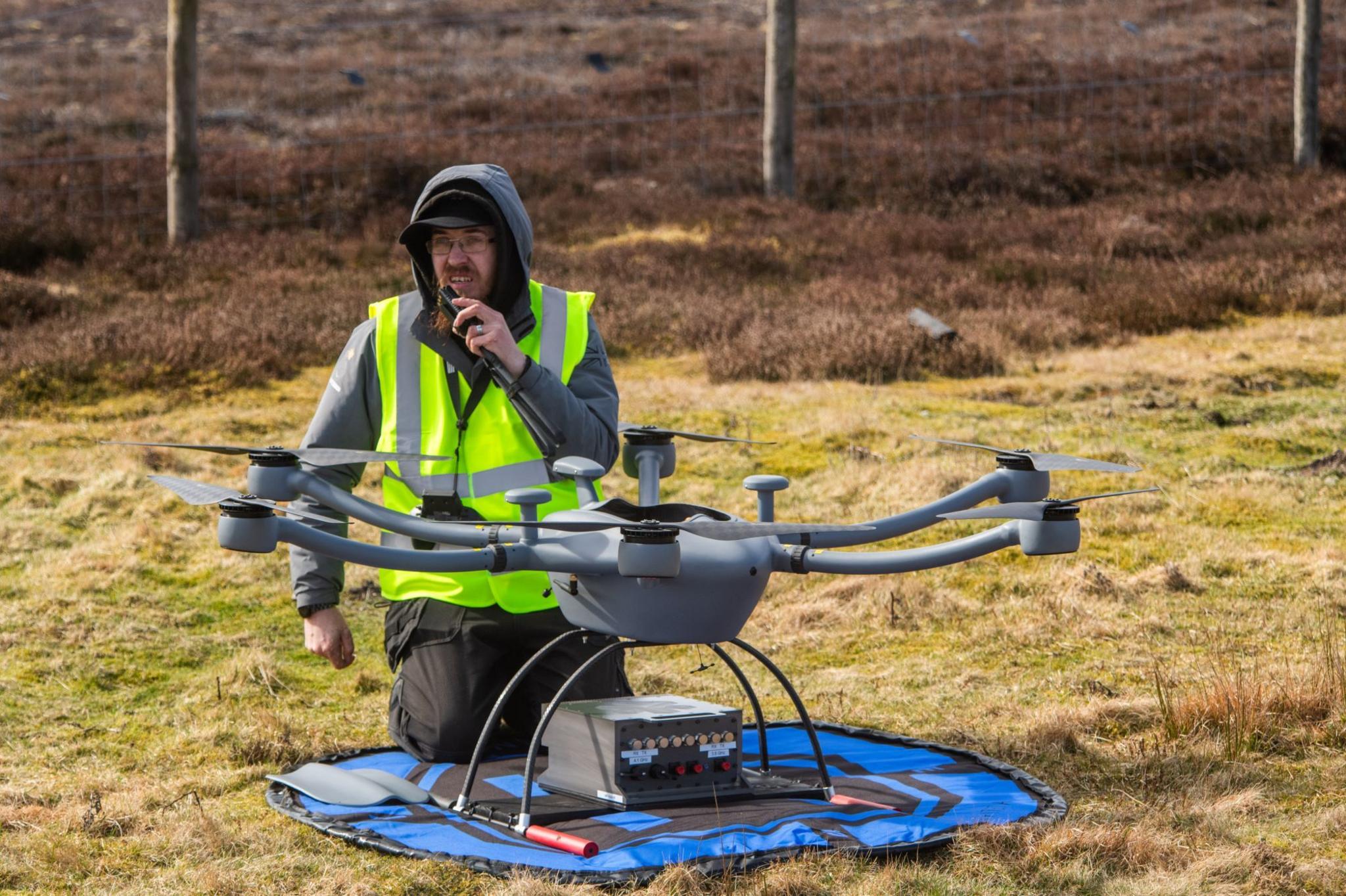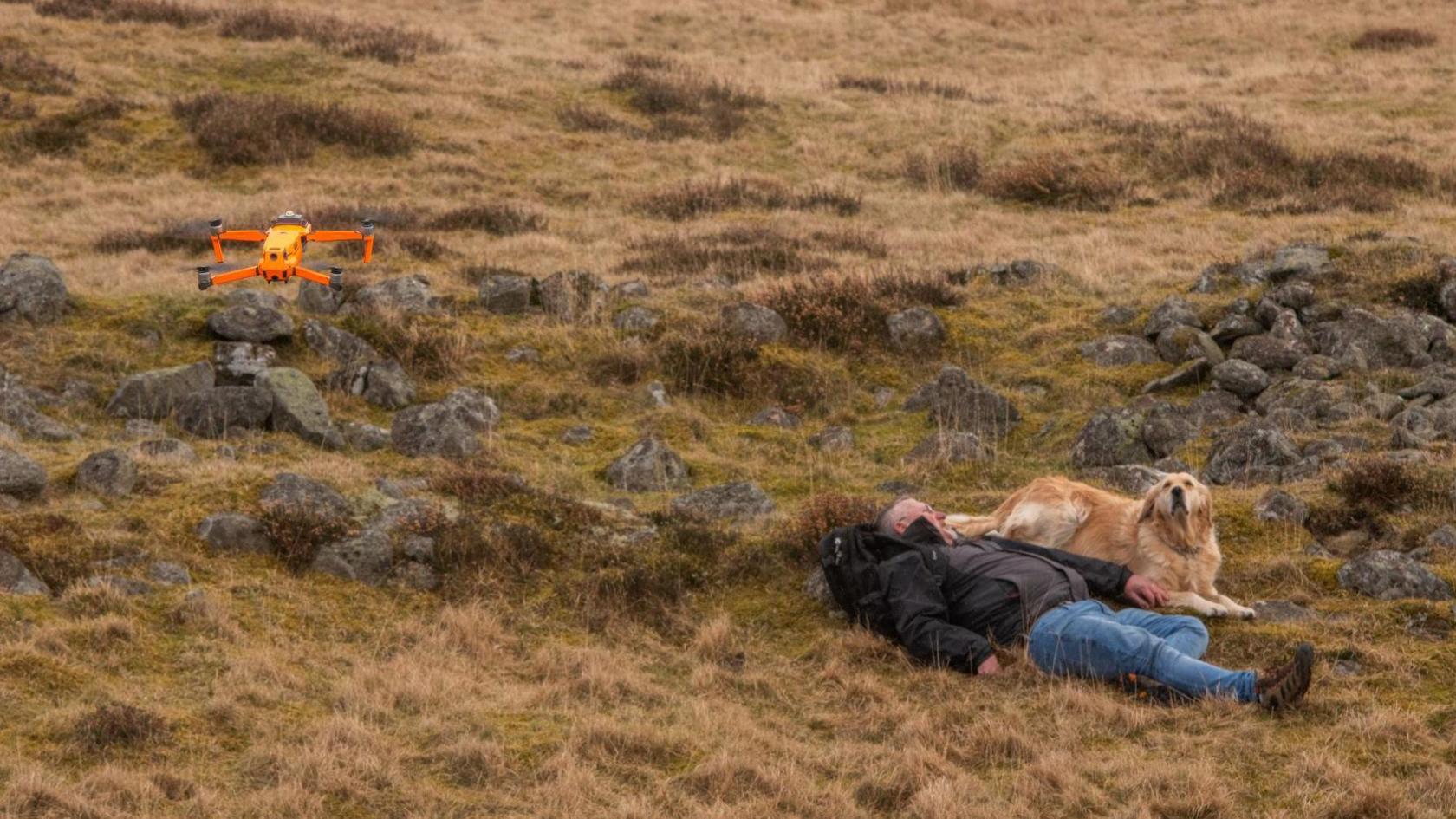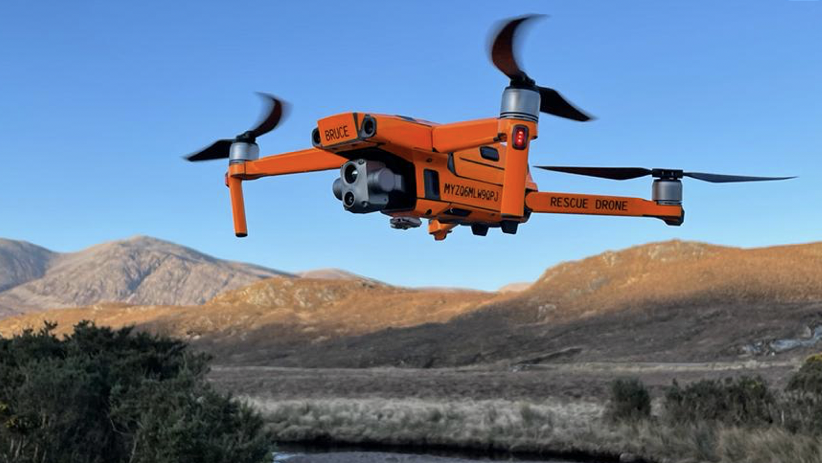5G drones aim to transform mountain rescue
5G drones in Angus aim to transform mountain rescue
- Published
Mobile phone signal in Scotland’s hills can be patchy.
This is a huge problem when something goes wrong and help is needed.
A trial in Tarfside in the Angus hills aims to change that and test the feasibility of creating pop-up mobile phone networks using drones.
Drones are already an important port of mountain rescue efforts.
The devices are able to cover terrain far quicker than traditional search teams and by equipping them with heat-detecting cameras, they can help to find injured or missing walkers.
At the moment, the view from the drone can only be seen by the operator but experts say if a temporary network could be set up during a rescue operation, images could be fed straight back to base.

The drones drop boxes which then communicate with each other to create a network for communications
Alistair MacIntyre is a drone operator with Scottish Mountain Rescue.
He said: “We would still be doing the searching but if anything was questionable, that could be beamed right back to our control vehicle or to our control base and we could get more people involved in making a decision as to whether we need to send a foot team in."
The technology works by strategically placing a number of 5G boxes around the search area. These are small enough to be walked into place or they can be flown in by drone.
The boxes then communicate with each other, creating a private, secure 5G network.
James Thomas from Jet Connectivity said: "From this box here we probably have signal on all the hillsides around us here and then from each of these boxes, we can then relay that over in to the next valleys.
"The drone could continue to fly and form a network in the sky but it could also drop the boxes and form a [wider] network”.

Drones can even drop boxes near casualties so that they can communicate with rescue teams
If a casualty has been identified, the boxes can be placed near them to allow them to communicate with rescuers or if a search is ongoing, the technology could be used to relay information from teams back to command base.
The system is also being tested in maritime settings and could also be used in disaster relief scenarios when networks go down.
In situations where every second counts, the 5G drone network can be set up in minutes.
Abertay University in Dundee has helped test the security of the network.
Senior lecturer Laith Al-Jobouri told BBC Scotland news: “5G is a new technology and with new technology there are challenges. It’s not enough to provide a network, but we need to provide a secure network.
"There is a lot of information that is going to be shared in this network so we test it to make sure its safe and can be used by the authorised people only.”
- Published1 November 2022
